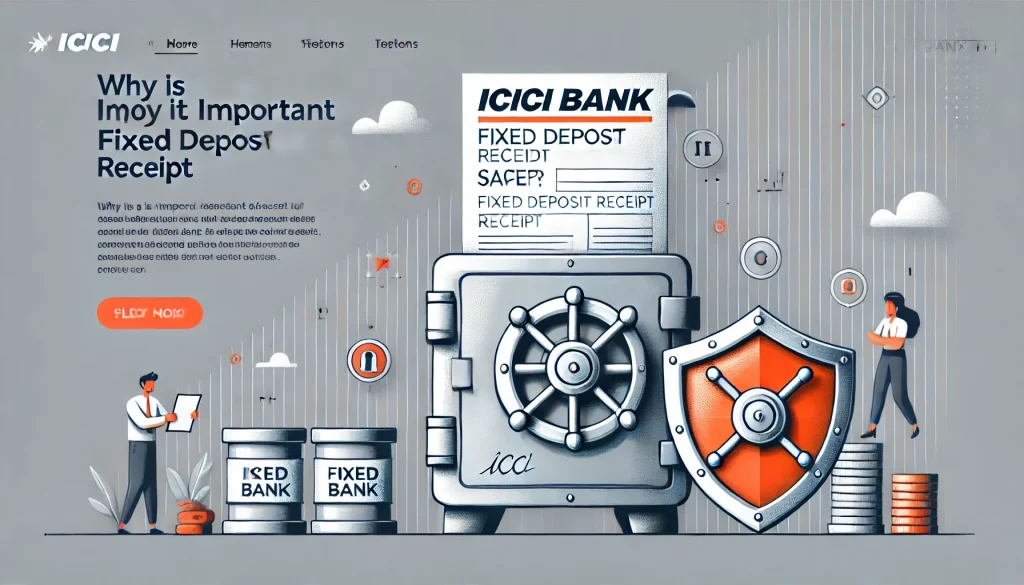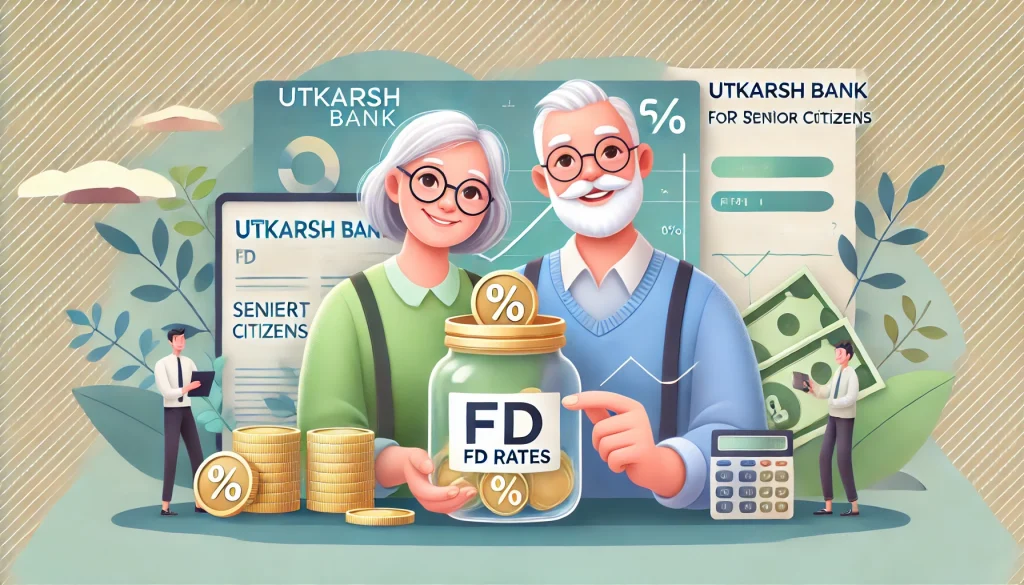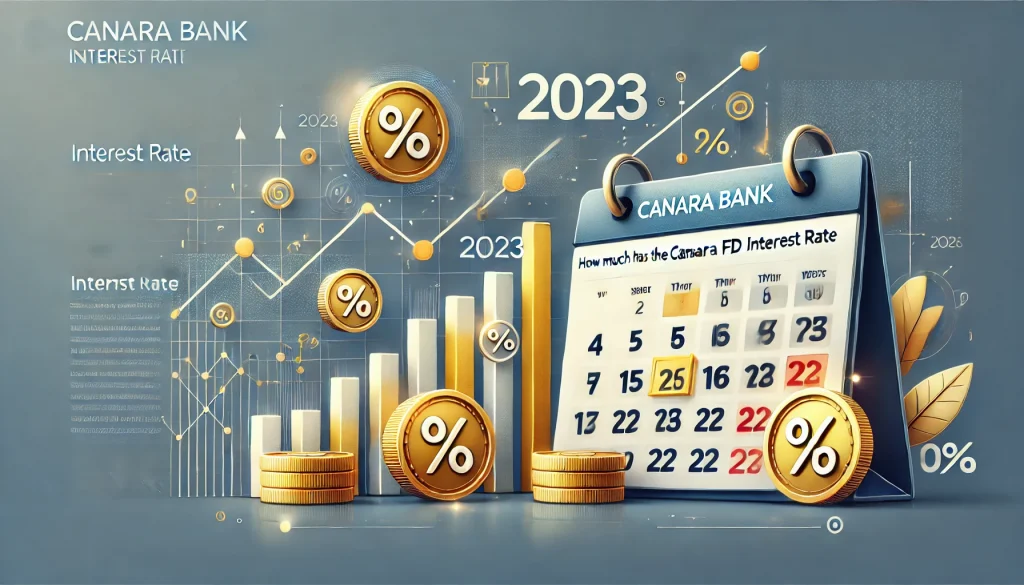
In today’s uncertain financial landscape, individuals continuously seek secure and rewarding investment options to grow their wealth. Fixed Deposits (FD) and Gold have long been considered traditional avenues for investment, each with its own set of advantages and disadvantages. In this blog, FD vs Gold, we will explore the world of FD and Gold investments, compare their key differences, and help you to decide which one may be a better investment option for you.
Understanding Fixed Deposits
Fixed Deposits, also known as Time Deposits or Term Deposits, are one of the safest and most straightforward investment vehicles offered by banks and financial institutions. When you invest in an FD, you deposit a specific sum of money for a predetermined period at a fixed interest rate. The deposited amount remains locked until the maturity date, earning you interest over time.
Advantages of Fixed Deposits
- Guaranteed Returns: One of the primary advantages of FDs is the assurance of fixed returns. Regardless of market fluctuations, the interest rate remains constant, providing a sense of security to risk-averse investors.
- Low Risk: FDs are considered low-risk investments as they are insured by the Deposit Insurance and Credit Guarantee Corporation (DICGC) for up to ₹5 lakhs per bank.
- Flexible Tenure: Investors can choose the FD tenure according to their financial goals, with options ranging from a few months to several years.
Gold Investment
Gold has been a cherished metal for centuries and continues to captivate investors due to its intrinsic value, stability, and hedge against inflation. There are various ways to invest in gold, including physical gold, gold ETFs (Exchange-Traded Funds), gold mutual funds, and sovereign gold bonds.
Advantages of Gold Investment
- Safe Haven Asset: During economic downturns or geopolitical uncertainties, gold often serves as a safe haven, protecting investors from market volatility.
- Diversification: Incorporating gold in your investment portfolio diversifies risk and can provide stability during times of economic turbulence.
- Inflation Hedge: Gold historically has been an effective hedge against inflation, preserving its value over time.
FD vs Gold – Key Differences
To make an informed investment decision, comparing the significant differences between FD and Gold investments is essential.
| Aspect | Fixed Deposits (FD) | Gold Investment |
|---|---|---|
| Type of Investment | Financial Instrument | Physical Asset |
| Risk | Low | Moderate to High |
| Returns | Fixed, Predetermined Interest Rate | Variable, Influenced by Demand |
| Liquidity | Less Liquid, Withdrawal Penalties | Highly Liquid, Easily Convertible |
| Safety | Insured up to ₹5 lakhs per bank | Subject to Market Fluctuations |
| Inflation Hedge | Limited, May Not Beat Inflation | Effective Hedge Against Inflation |
| Market Volatility | Minimal Impact | Prone to Price Fluctuations |
| Holding Period | Fixed Term (Maturity Date) | No Fixed Maturity Date |
| Tax Implications | Taxable as per Income Tax Slab | Tax Treatment Varies by Country |
| Diversification | Limited to Fixed Interest Returns | Diversifies Portfolio Risk |
1. Liquidity
- FD: FDs offer a fixed interest rate but are relatively less liquid. Withdrawing the invested amount before maturity might lead to penalties and reduced returns.
- Gold: Gold, on the other hand, is highly liquid and can be easily converted into cash or other assets in times of need.
2. Returns
- FD: FDs provide fixed returns, making them predictable and secure. However, the returns may need to catch up with inflation, impacting purchasing power over time.
- Gold: The value of gold is influenced by market demand and supply dynamics, making its returns more volatile compared to FDs. Yet, it has the potential for substantial capital appreciation.
3. Risk
- FD: FDs are considered low-risk investments, ensuring that the deposited amount is safe even during financial crises.
- Gold: While gold is perceived as a safe haven asset, its value can fluctuate significantly in response to economic and geopolitical events.
FD vs Gold – Which is a Better Investment Option?
Deciding between FD and Gold investment depends on your financial goals, risk appetite, and market outlook.
1. Choose Fixed Deposits if:
- You prefer assured returns with minimal risk.
- The stability and safety of the principal amount are paramount.
- You are looking for a fixed income stream over a specific period.
2. Choose Gold Investment if:
- You seek to diversify your investment portfolio with an asset class that often moves inversely to traditional markets.
- You want to hedge against inflation and safeguard your wealth during economic uncertainties.
- You are comfortable with the possibility of short-term volatility for potential long-term gains.
Conclusion
In conclusion, Fixed Deposits and Gold investments have unique advantages and drawbacks. Fixed Deposits offer guaranteed returns and low risk, making them an excellent choice for conservative investors. On the other hand, Gold is a safe haven during turbulent times and a hedge against inflation, making it appealing to those seeking diversification and long-term appreciation potential.
Ultimately, the choice between FD and Gold boils down to your financial objectives, risk tolerance, and investment horizon. A well-balanced portfolio may include both, allowing you to enjoy the benefits of each asset class.
To book an FD, you can download the Stable Money app from Play Store and App Store.
FAQs
Yes, Fixed Deposits are considered safe investments as they are insured by the Deposit Insurance and Credit Guarantee Corporation (DICGC) for up to ₹5 lakhs per bank.
Yes, you can withdraw your Fixed Deposit before maturity, but it may lead to penalties and reduced returns.
Yes, the value of Gold can fluctuate based on market demand and supply dynamics, economic conditions, and geopolitical events
.
Gold’s intrinsic value tends to hold over time, making it an effective hedge against inflation and preserving purchasing power
Gold has the potential for higher returns due to its capital appreciation during certain market conditions. However, Fixed Deposits offer predictable returns with minimal risk.
Yes, it is possible to have a diversified investment portfolio that includes both Fixed Deposits and Gold, providing a balance between stability and potential growth.
Disclaimer
This article is solely for educational purposes. Stable Money doesn't take any responsibility for the information or claims made in the blog.


